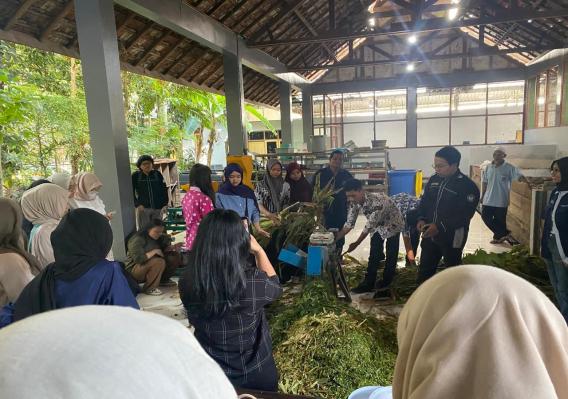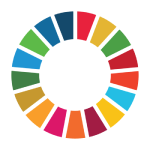UNY Encourages Sustainable Agricultural Innovation through the Production of Environmentally Friendly Fermented Animal Feed

Students of Universitas Negeri Yogyakarta (UNY) have developed an innovation in the livestock sector by conducting practical training on the production of environmentally friendly fermented animal feed at the Campus Animal Husbandry Laboratory. This activity serves as an applied learning platform to introduce students to natural-based and resource-efficient feed processing technologies.
In this practice, students directly create silage or fermented feed through several stages, starting from chopping materials, preparing fermentation solutions, to storing them under anaerobic conditions. The fermentation process utilizes Effective Microorganisms (EM4) and molasses as natural activators to accelerate fermentation without reducing the nutritional content of the materials.
The main ingredients used include young corn plants, bagasse, and elephant grass. After being chopped using a feed chopper machine, these materials are evenly mixed with the fermentation solution and tightly stored to prevent exposure to air. Within approximately two weeks, these materials will transform into fermented feed that is more durable, easily digestible, and has a distinctive aroma favored by livestock such as cattle and goats.
The supervising lecturer of this activity, Ir. Suhandoyo, M.S., explained that this activity is designed to provide students with hands-on experience in processing local materials into high-value products.
“The production of fermented feed not only trains students' technical skills but also fosters awareness of the importance of resource efficiency and sustainable agricultural waste management,” said Suhandoyo. “We want students to understand that such simple innovations can be real solutions to support livestock food independence at the community level.”
This practical activity is part of the UNY Green Campus program, which aims to integrate environmental sustainability into various academic and community service activities.






